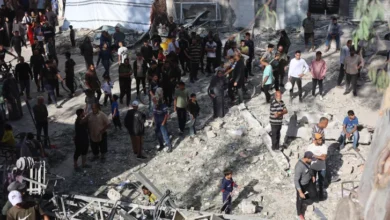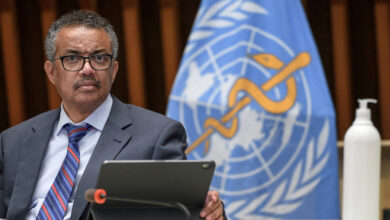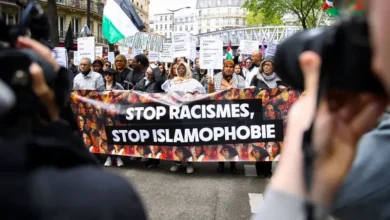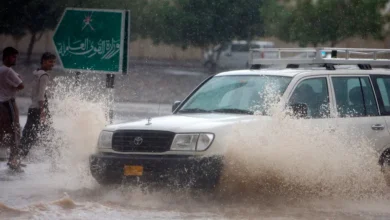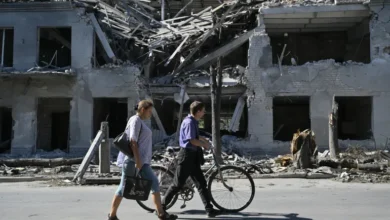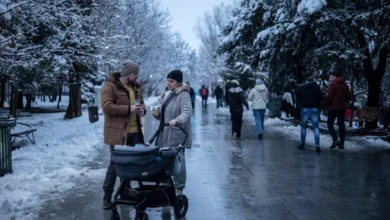‘Traumatic’ trend: Ransom kidnappings thrive in South Africa as crime soars
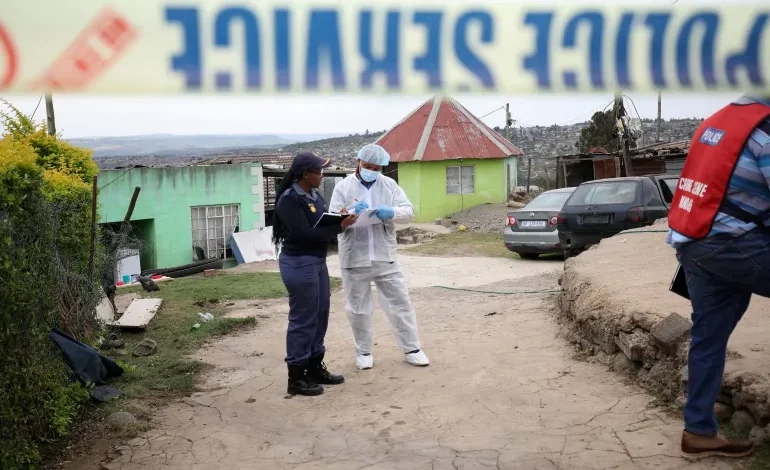
Last October, what seemed like an ordinary commute to work in Nkangala in the eastern South African province of Mpumalanga, quickly turned into an ordeal for Maggie Skosana and her driver Gugu Mtsweni.
As the car carrying both women approached the Nkangala municipality office which Skosana runs as manager, a car with flashing blue lights, similar to those used by law enforcement agencies in the country, blocked the gate they were to enter through. Three men wearing police-branded balaclavas came out and accosted them.“They were masquerading as police officers,” Skosana told Al Jazeera. “They indicated they were there to arrest me. I refused and insisted we should go inside the office building. After refusing, one guy came into our car with a rifle and instructed us to drive.”
A short distance away, Skosana, a wheelchair-bound mother of four, was dragged into another vehicle along with her driver and taken to an unknown location. Their car and Skosana’s wheelchair were later found abandoned at a nearby mine by the police.
“They took my bank cards and demanded pin codes, which I gave to them,” says Skosana. In the evening, they were moved to another house in the Gauteng province [138km or 86 miles away] where they were kept for seven days until they were freed. “We were very very scared. We didn’t know where we were, who we were with, and not certain if we will ever see our families again. It was very traumatic for us,” Skosana said, reliving her ordeal.
Media reports at the time suggested that up to 5 million rand ($260,000) was paid to the kidnappers. Skosana declined to confirm to Al Jazeera if any ransom was paid.
Her story is part of an alarming trend of kidnappings on the rise in South Africa. In the last year, there have been a number of brazen abductions captured on mobile phones and security cameras and shared widely on social media. These incidents have caused many individuals, including business owners, to beef up security around them and their families.
Over the past decade, kidnappings have risen nearly 200 percent. According to crime statistics from the South African Police Service (SAPS), the figure ballooned from 3,832 cases in 2013 to nearly 11,000 in 2021. Between January and March 2023, 3,641 cases were recorded, a 10 percent rise compared with the same period in 2022.
Data on the estimates of ransom paid over the last decade is not readily available. But according to a 2022 risk assessment of South Africa, conducted by the Global Initiative Against Transnational Organised Crime, the figures for kidnapping for ransom and extortion could be much higher than what is reported to the police.
As per the report, many cases are likely under-reported due to “persistent threats to the victim’s well-being and that of his/her family, even after release”.This has now spilled over to South Africa where armed gangs, some sophisticated and others running small operations, have targeted foreign nationals operating businesses here.
“There are two types of kidnapping syndicates,” anti-crime activist Yusuf Abramjee told Al Jazeera. “The smaller gangs demand anything from 50,000 to 300,000 rand [$2,600-16,000]. And it’s out of greed.”
“The smaller ones are all local,” he added. “Then you have the bigger syndicates with international links. Sometimes the money has to be paid in Bitcoin and in foreign bank accounts and foreign exchanges like in Dubai.”‘Easy money’
But it is not only the wealthy who are targeted as kidnappers tailor their ransom demands to suit the perceived value of the victims. Some abductees are taken for a couple of hours while the kidnappers clean out their bank accounts, and other victims are kept for longer periods while large ransoms are negotiated.
Nevertheless, the emergence of a wider demographic being targeted by kidnappers is a growing concern to many South Africans and a topic of daily conversation across taxi ranks, bars, and even on radio stations nationwide.
The proliferation of kidnappings across the country prompted the establishment of the Anti-Kidnapping Task Team by the SAPS in November 2021.The team’s main priority has been to track suspects and syndicates involved in kidnappings around the country. The unit has achieved some success in the two years since its inception, having investigated 134 cases of ransom demands and made 124 arrests.
Currently, the epicentre of the kidnapping crisis is the Gauteng province, the economic heartland of all of Southern Africa and home to Johannesburg, South Africa’s commercial capital. More than half of the total cases so far have been reported from the province. But gangs have been spreading to other parts of the country in search of new targets.
In the port city of Gqeberga in the Eastern Cape province, authorities have reported 183 incidents in the first quarter of this year. Yolisa Mgolodela, provincial spokesperson for the Hawks – an investigative unit of the police, told Al Jazeera that kidnappings have risen as opportunistic criminals are drawn to committing kidnappings because of the perceived low risk. “It’s easy money, you don’t sweat. it’s an easy way of making money for them,” she said.
And that is a hard pill to swallow for survivors like Skosana, whose attackers remain at large.
“Crime is so high in this country,” she lamented. “Thugs are so comfortable they are not even scared of police officers. I feel as South Africans we are on our own when it comes to safety and security.”


